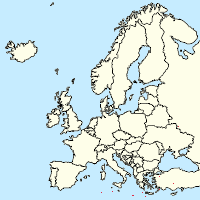Petitioner did not submit the petition.
Dear Members of the European Parliament,
Dear Representatives of Member States,
Large platforms continue to suppress public interest research by scientists, civil society watchdogs, and journalists. The heavy-handed actions by Facebook against New York University’s Ad Observatory [1] is the latest high-profile example – but it also happens in the EU, as the case of AlgorithmWatch’s data donation project shows. It is time for legislators to step up. The DSA is the perfect opportunity to do just that.
We write to you in the middle of the ongoing legislative procedure on the Digital Services Act (DSA), proposed by the European Commission in December 2020. As concerned citizens, as researchers, and as civil society organizations, we want to draw your attention to the recent alarming examples of how platforms oppress public interest research on the way they influence the public debate. We ask you to use the opportunity the DSA offers and stand up to this behaviour.
Facebook – as one of the largest platforms – has repeatedly restricted researchers’ access to data, hindering public interest research not only in the United States but also in Europe: The watchdog organization AlgorithmWatch has recently been forced to shut down its Instagram monitoring project after threats from Facebook to escalate to “more formal engagement”. [2] Civil society organizations typically cannot risk going to court against a company valued at one trillion dollars, and Facebook’s reaction shows that any organization that attempts to shed light on one of its algorithms is under constant threat of being sued. Facebook clearly misuses its power to quash public interest research and therefore prevents an evidence-based debate about the impact platforms have on democratic processes and fundamental rights.
In your position as representatives of the European citizenry, we ask you to ensure that Terms of Service cannot be weaponized against individuals or organizations that attempt to hold large platforms to account. Financial power must not be the currency that governs our public sphere.
Holding platforms accountable requires having insight into relevant information on how they curate content and thereby influence public discourse. One of the key barriers to scrutinizing platforms precisely lies in researchers’ lack of access to relevant data. The DSA would overcome this barrier by requiring transparency on advertisement targeting criteria (Article 30), and by giving researchers access to platform data (Article 31). However, Article 31 should not limit such access to “vetted researchers” with academic affiliations but also explicitly mention other sources of public interest research: civil society organizations and journalists. We strongly urge you to uphold the provisions in the current negotiations of the act and make sure these researchers can continue to fulfil their key watchdog function.
As AlgorithmWatch’s story illustrates, we cannot simply rely on what platforms tell us they do. While the DSA foresees auditing mechanisms by both independent third-party auditors and regulators, it places strong emphasis on companies’ own risk-assessments and non-binding codes of conduct. We ask you to make sure that DSA auditing procedures are more than a box-ticking exercise.
[1] https://techcrunch.com/2021/08/04/facebook-ad-observatory-nyu-researchers/
[2] https://algorithmwatch.org/en/instagram-research-shut-down-by-facebook/
Reason
Large platforms play a crucial role in society, influencing vital interactions from identity-building to voting choices. How they do this is largely unknown. Individuals must be empowered to be more autonomous in their use of social media platforms. Only by working towards more transparency can we ensure, as a society, that there is an evidence-based debate on their impact – which is a necessary step towards holding them accountable. Only if we understand how our public sphere is influenced by platforms’ algorithmic choices can we take measures towards ensuring they do not undermine individuals’ autonomy, freedom, and the collective good. We invite you to help us turning the DSA into an effective tool to do just that.
We thank you for your effort in keeping our public sphere healthy and resilient.
Link to the petition
This petition has been translated into the following languages
-
Petition wurde nicht eingereicht
on 28 Apr 2023Liebe Unterstützende,
der Petent oder die Petentin hat innerhalb der letzten 12 Monate nach Ende der Unterschriftensammlung keine Neuigkeiten erstellt und den Status nicht geändert. openPetition geht davon aus, dass die Petition nicht eingereicht oder übergeben wurde.
Wir bedanken uns herzlich für Ihr Engagement und die Unterstützung,
Ihr openPetition-Team -
The EU has reached a deal on the Digital Services Act
on 27 Apr 2022Dear Supporters,
just before 2:30am on Saturday morning, EU negotiators announced they had finally reached a deal on the Digital Services Act (DSA). The law is set to lay the groundwork for regulating major online platforms in the EU and therefore central to our demands for platform transparency. Early reports show we’ve made important progress, but the devil’s in the details that are yet to be decided on.
To better understand the major implications of this, let's take a brief look back at how we got here: In April 2021, AlgorithmWatch, together with Sueddeutsche Zeitung, started a research project on Instagram and its influences on Germany’s national election campaign. Do Instagram’s algorithms polarize the public debate? Do they promote... further
Debate
Everyone is affected by what facebook does, whether you registre with them or not. Facebook uses public resources, it grabs and sells data even using shadow profiles for those that never registred themselves, and manipulates the public to make even more profit. The public has a right to know how exactly it does that. This company has created a system that is very hard not to be part of without loosing out on public participation. With that, it successfully aims at performing the function of state institutions and the press. It should be held accountable and scrutinised at least as much as thes
Data mining algorithms are (as every algorithm) intellectual property. It is core of informatics business and it is major capital of the firm. It is not possible to enforce private society to publish their capital and make it available freely to its competitors.

